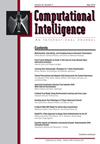Reinforcement Learning Driven Cross-Trained Worker Assignment Approach Based on Big Models: A Study for A Hybrid Seru Production System Considering Learning Effect
Abstract
As manufacturing faces evolving customer demands, the integration of Industrial Internet of Things (IIoT) networks is crucial for enhancing production flexibility. In this context, the Seru Production System (SPS) has emerged as a highly adaptable production mode and emphasizes the strategic assignment of cross-trained workers, particularly in hybrid configurations combining divisional and rotating serus. This paper proposes a novel bi-objective mathematical model incorporating learning effects to minimize makespan and balance workloads among workers. With the development of Artificial Intelligence Generated Content (AIGC) empowered big models, new breakthroughs have emerged in industrial manufacturing decision-making. These models utilize deep learning for foundational content processing and leverage reinforcement learning to optimize strategies. This process provides robust support for achieving efficient decision optimization. Building on the concepts of AIGC big models training, this study employs reinforcement learning to refine the results of multi-objective genetic algorithms, thereby improving the solution capability of the bi-objective model. Experimental results demonstrate that the proposed algorithm effectively provides optimal strategies for tuning crossover and mutation operations. Additionally, numerical experiments offer insights into the formation of hybrid SPS configurations.

 求助内容:
求助内容: 应助结果提醒方式:
应助结果提醒方式:


